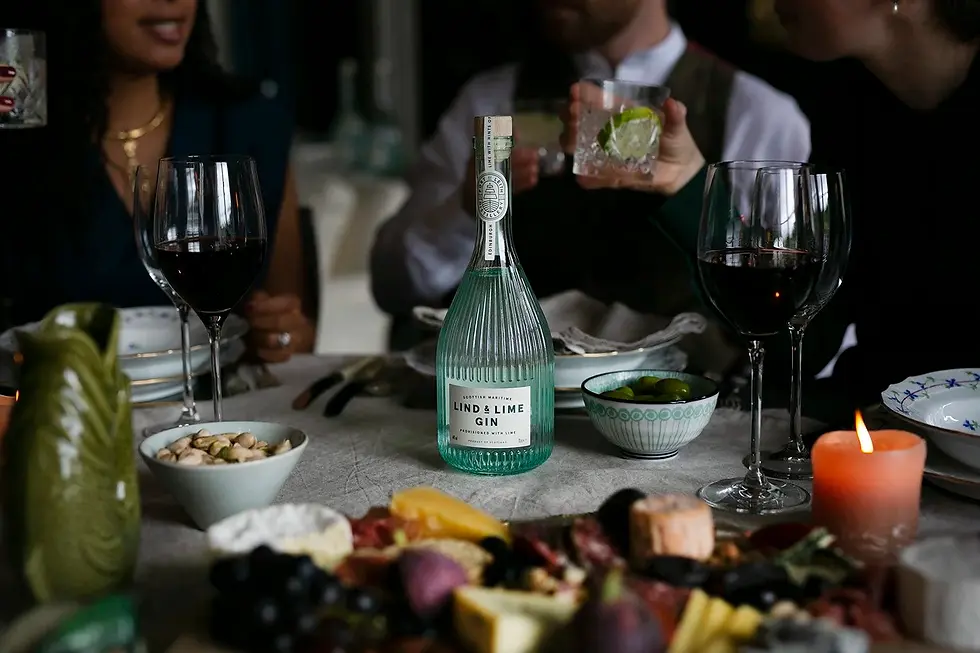WINE OF THE MONTH
- Sales Team
- Oct 10, 2025
- 3 min read

Bodegas Pirineos and the Return of Moristel
In the shadow of the Pyrenees Mountains, where ancient stone villages cling to hillsides and the Río Vero cuts through Huesca province, a quiet revolution is taking place. At Bodegas Pirineos, a cooperative winery in the heart of DO Somontano, winemakers are turning their backs on international fashion and returning to their precious own roots.
The bodega takes its name from the Aragonés word for the Pyrenees, those snow-capped peaks that loom over the region's capital, Barbastro. But Bodegas Pirineos is far more than a single estate. This is a vast collaborative effort spanning 700 hectares—nearly a quarter of the entire DO—farmed by 230 family growers across 23 tiny pueblos north and west of Barbastro. From valley floors to hill slopes, these families tend vineyards that stretch as far north as the hamlet of Salas Altas, where something remarkable is happening at 600 meters altitude.
Here, the local varietal Moristel is being rescued from near extinction.
A Variety on the Brink
Moristel is unique to Somontano, a thin-skinned variety that once defined the region's wine identity. But productivity trumps poetry in modern viticulture, and most growers have ripped out their old Moristel vines in favour of more reliable foreign varieties. Today, Moristel accounts for a mere 1.95% of Somontano's vineyards—a vanishing footnote in the region's viticultural story.
Enter Bodegas Pirineos and their commitment to preservation. When sherry house Barbadillo bought a 76% stake in the cooperative in 2007, they brought capital and a renewed focus on quality. Among the initiatives: championing Moristel and proving that this indigenous variety deserves a place at the table.

Returning to the Source
The winery's 'Principio' Moristel 2023 embodies this philosophy. The name means "origin" or "source" in Spanish, a declaration that great wine begins not with trends but with place and heritage.
This is wine made with restraint and respect. Just 5,000 bottles are produced from 20-year-old vines growing in sandy loam over sandstone and marl at elevations between 400 and 600 meters. Rainfall barely reaches 400mm annually, and the high diurnal temperature swings—scorching days, frigid nights—promote polyphenol maturity while safeguarding natural acidity.
The winemaking is minimalist to the point of asceticism, fermentation in stainless steel with natural yeasts, no oak, no fining, no filtration, minimal sulphur. "Just the naturally fermented grape, bottled," as the winery puts it.

A Wine of Place and Memory
Pour a glass and you're transported. There are smoky-woodsy red fruits, light charred chestnut leaves, fine sour cherry, and dried cranberry. It's evocative in the way only wines of place can be—you can almost feel yourself tracking game through the encinas (holm oaks), hunching low, swooshing through dried grasses, smelling dust, feeling the fresh chill of the Pyrenees creeping down the mountainside.
The 2023 vintage shows more generosity than previous years, with a touch of roundness that softens the naturally sour profile. The mouthfeel is delicate but textured—non-fruity, non-glyceric, yet satisfying. What lingers is that lovely leafy-vegetal-light spice perfume, a finish that seems to go on and on, whispering of the wild mountains and ancient pueblos where this grape was born.
Principio Moristel isn't trying to be Pinot Noir or Grenache or anything other than itself. In an age of globalised wine, that might be its greatest achievement.

_edited_edited.png)



Comments